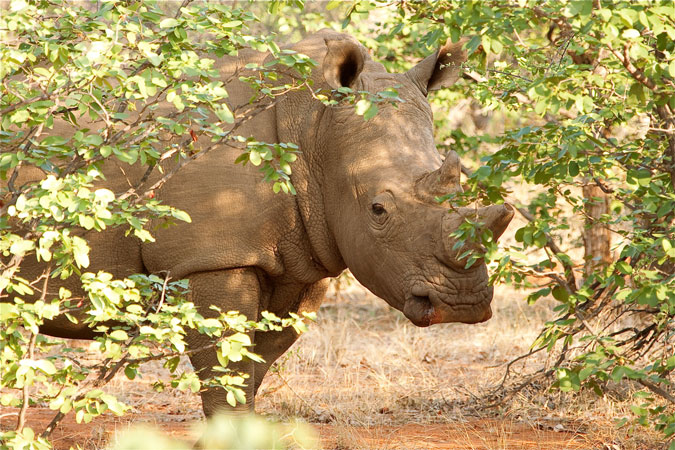The combined effects of drought and poaching have reduced estimated white rhino numbers in South Africa’s Kruger National Park by 18% during the past year, according to the latest official figures. See point 4 below, for more information about this specific statistic. This amid a decline in poaching statistics generally.

South African Minister of Environmental Affairs Edna Molewa last night issued a lengthy report back on the Integrated Strategic Management of Rhino during 2016. Here then are the 10 facts from her report that we think you should be aware of. Read the entire announcement here.
1. A total of 1 054 rhinos were poached nationwide in 2016 (1 175 in 2015) – a decline of 10.3%;
2. Specifically for the Kruger National Park, a total of 662 rhino carcasses were found in 2016 (826 in 2015) – a decline of 19.85%;
3. Again for Kruger, there were a staggering 2 883 instances of poaching-related activities in 2016 (2 466 in 2015) – an increase of 16.9%. These include poaching camps, contacts, crossings, sightings, tracks and shots fired. These criminal gangs are armed to the teeth, well-funded and part of transnational syndicates who will stop at nothing to get their hands on rhino horn;
4. White rhino population estimate in Kruger is 6 649 – 7 830 (corresponding 2015 estimate was 8 365 – 9 337) – a decrease of 18%. It must be noted that there was an increase in natural deaths of white rhinos due to the unprecedented drought conditions;
5. Black rhino population estimate in Kruger is 349 – 465 (corresponding 2015 estimate was 313 – 453 – an increase of 6%. The drought effect was not as noticeable on black rhinos;
6. 46 elephants were poached in the Kruger (no 2015 figure provided);
7. 11 rhinos were internally translocated away from boundaries in the Kruger for security reasons – part of an ongoing internal translocation strategy;
8. 106 rhinos were translocated from national parks to private strongholds, and none of these were poached;
9. There are approximately 38 orphans under the care of Kruger National Park and partners and Ezemvelo KZN Wildlife;
10. 680 poachers and traffickers were arrested for rhino-related poaching offences nationally (317 in 2015). Of this number, 417 were arrested in or near the Kruger National Park. 148 firearms were seized inside the Kruger, and 6 just outside the park.
Also read: January 2022 update on rhino populations in the Kruger National Park
To comment on this story: Login (or sign up) to our app here - it's a troll-free safe place 🙂.![]()






